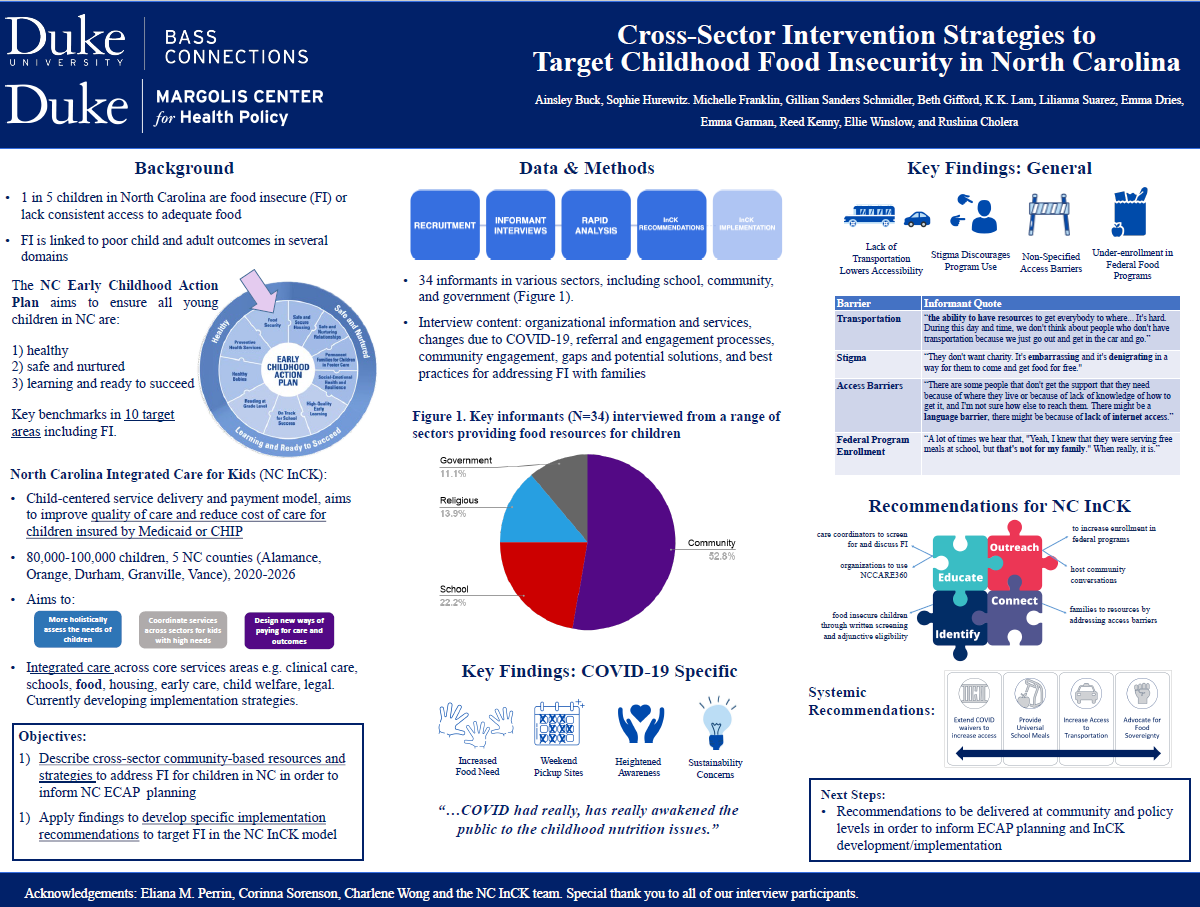Ensuring NC Children Have Access to Healthy Food
Project Team
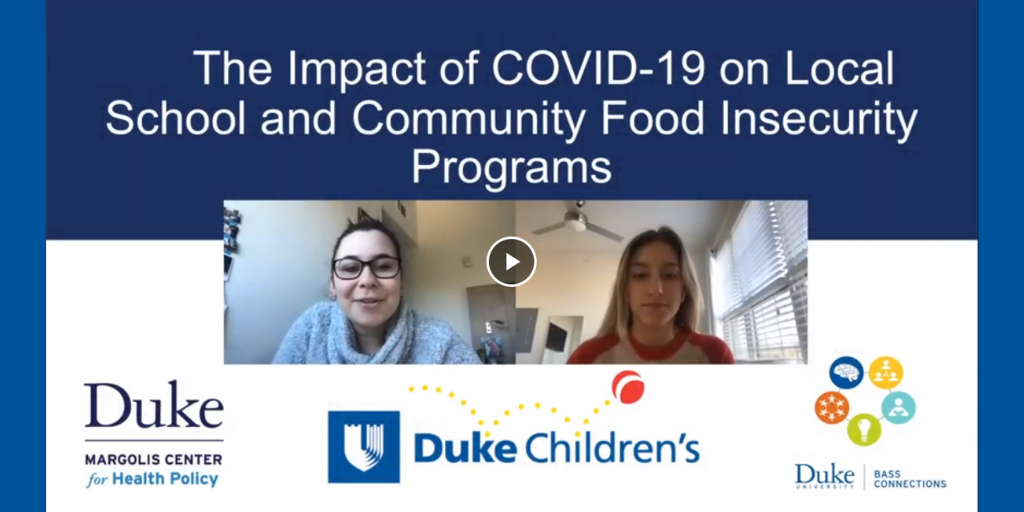
Team Profile by members of the North Carolina Early Childhood Action Plan project team
Our team is a multidisciplinary, policy-focused working group composed of health professionals, faculty, and graduate and undergraduate students working to support the North Carolina Early Childhood Action Plan initiated by Governor Roy Cooper. This plan aims to have young children healthy, safe and nurtured, and learning and ready to succeed statewide. This year, we’re focused on the food security goal, which aims to ensure that children and their families across North Carolina have access to healthy food.

Unfortunately, childhood food insecurity rates have increased due to the COVID-19 pandemic. Prior to COVID-19, 1 in 5 children in North Carolina lived in food insecure homes. Now, 1 in 4 children experience food insecurity. As food insecurity impacts a child’s well-being, innovative healthcare models are increasingly screening and intervening upon food insecurity in childhood. Using this hypothetical patient Jonathon, this graphic exemplifies how the North Carolina Integrated Care for Kids (or InCK) model will address food insecurity and other social needs. NC InCK will work to integrate services addressing various social determinants of health for more than 80,000 children in the state from 2022-2027.
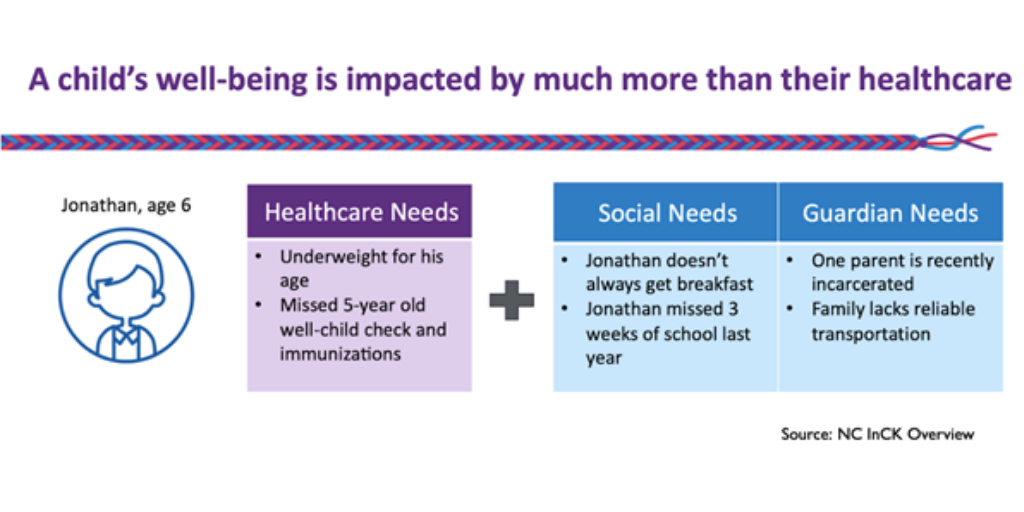
InCK aims to better coordinate the care for children birth to age 20 that are insured by Medicaid or CHIP in Alamance, Orange, Durham, Granville, and Vance counties. Ultimately, our recommendations will provide a roadmap for NC InCK to address food insecurity among children insured by NC InCK.
We conducted semi-structured informant interviews and recruited informants from programs based in various sectors, including community, schools, religion, and government, in order to address InCK’s goal of increasing cross-sector collaboration. These informants either had representation statewide or were from 1 of the 5 InCK counties. We then used rapid qualitative analysis and a resulting matrix to inform our findings for NC InCK.
We identified five main general findings: the presence of stigma associated with food insecurity and accessing services, the importance of food choice and autonomy when participating in food assistance programs, the necessity for cross-sector collaboration and data-sharing to strengthen referral systems, low levels of usage of the NCCare360 platform related to unfamiliarity and limited staff capacity, and numerous barriers and obstacles in gaining access to and getting enrolled in food assistance programs.
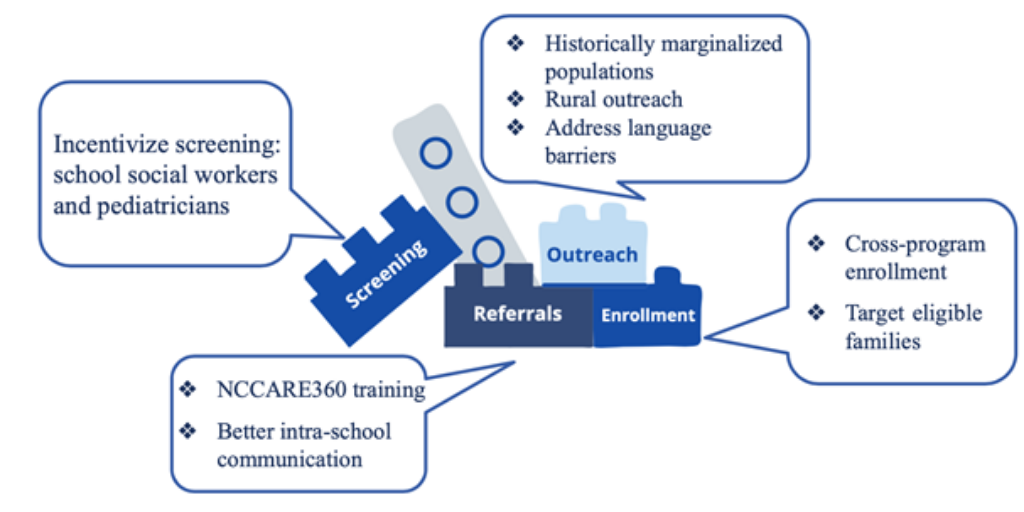
While our recommendations are still evolving, we anticipate that we will deliver them to InCK at both the community and policy level. Community-based recommendations include strengthening both screening processes and referral mechanisms associated with food insecurity. Additionally, we recommend that community organizations and community leaders continue focusing on outreach to historically marginalized populations as well as incorporating nutrition-focused education initiatives into their existing programming.
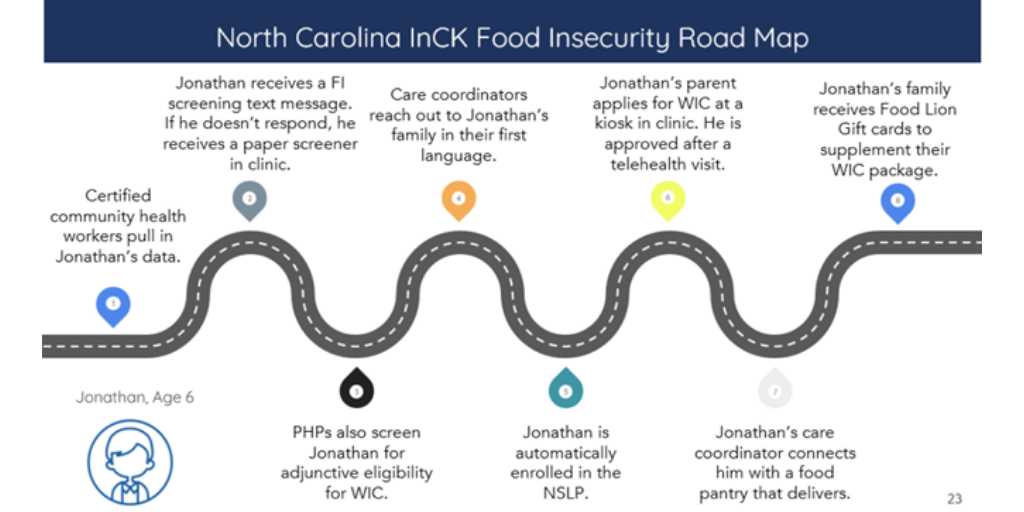
Our policy-based recommendations include increasing enrollment in federal programs such as SNAP, WIC, the National School Lunch Program, and the Summer Food Service Program, in part by continuing education efforts and outreach initiatives, and reducing the documentation-associated barriers faced by populations in need.
Explore our final report: Childhood Food Insecurity in North Carolina: Policy Recommendations for NC InCK
Cross-sector Intervention Strategies to Target Childhood Food Insecurity in North Carolina
Poster by Ainsley Buck, Sophie Hurewitz. Michelle Franklin, Gillian Sanders Schmidler, Beth Gifford, K.K. Lam, Lilianna Suarez, Emma Dries, Emma Garman, Reed Kenny, Ellie Winslow, Rushina Cholera

